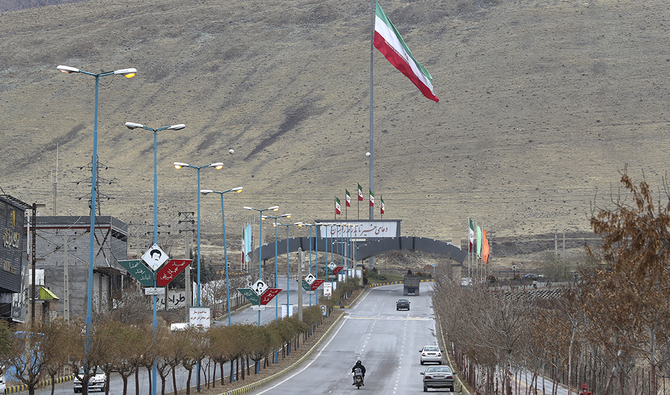
- ARAB NEWS
- 18 Jul 2025

In the Middle East, the first half of 2021 is promising to be busy for the Biden administration. The new White House must navigate the complex regional and geopolitical mazes inherited from the previous administration’s patchwork transactionalism and unilateralism that intensified the crises now threatening to further destabilize the region.
Conventional US wisdom that foreign affairs take a back seat in favor of urgent needs at home will simply not suffice. Four years of inattention have weakened the multilateral frameworks that the US must rely on to broker desperately needed resolutions in the Middle East and elsewhere. Restoring faith and trust in multilateralism will go a long way to securing US foreign policy objectives — particularly those focused on nuclear diplomacy with Iran.
The Biden administration’s plans for a nuclear deal with Iran have divided analysts and stakeholders alike. Three schools of thought have emerged: A return to the original 2015 Joint Comprehensive Plan of Action (JCPOA), an amended “JCPOA-plus,” or an entirely new agreement. Of the original P5+1 (China, France, Russia, the UK and the US, plus Germany), the Europeans have indicated support for a return to the 2015 deal as a starting point to resume diplomatic engagement. Biden has signaled he will seek amendments to the 2015 deal aimed at curbing Tehran’s ballistic missiles programs and regional adventurism, echoing concerns from Washington’s Gulf Arab allies. The International Atomic Energy Agency (IAEA) is calling for an entirely new agreement, specifically to prevent Iran reaching sufficient capacity to produce enough highly enriched uranium using its gas centrifuges.
The landscape in 2015 was vastly different, and the circumstances that led to the original JCPOA no longer apply. There were no Abraham Accords to dissuade Israeli missile strikes against Iranian targets; reprisals by Tehran would hit nations that have normalized relations with Israel. Russia and China were not as close to Tehran as they are now, and neither country has signaled its support (or lack thereof) for the incoming administration’s plans to revitalize nuclear talks. Moscow and Beijing are now more likely to weigh their own interests against those of a multilateral coalition, given their deeper ties to Iran.
Meanwhile, Iran’s nuclear program has continued apace even under sanctions, rendering them useless as leverage in any renewed discussions. Even with a moderate leadership, Iran is estimated to have amassed more than 2.5 tons of highly enriched uranium. In addition, Washington walking away from the 2015 deal has emboldened denials and lack of transparency regarding newly built nuclear research facilities.
Iran’s nuclear program has continued apace even under sanctions, rendering them useless as leverage in any renewed discussions.
Hafed Al-Ghwell
Any new deal will seek greater access to such facilities, halving the quantity of uranium and limiting enrichment to 20 percent, but there is little chance a government led by hardliners will agree to such terms. A presidential election looms in 2021 and should Iran’s hardliners gain more power and influence, Tehran will push for harder bargains such as restoring access to some frozen overseas assets in return for scaling down its nuclear ambitions.
Unfortunately, allowing access to those funds risks directing them toward missile programs in Lebanon and Syria, especially if Washington addresses Tehran’s regional adventurism. Iran will definitely be pressured if the US offers generous backing of the Iraqi government and military conditional on weeding out Iranian influence. Additionally, the Abraham Accords offer an avenue for the development of regional missile defense infrastructure to counter Iranian missiles launches from Yemen, Lebanon, Syria and Iraq.
Overall, while the circumstances, stakes and potential signatories have changed, there is still room for the Biden administration to engineer a new nuclear deal that may or may not look like its 2015 predecessor. However, while the prospect of an Iranian hardliner winning in June 2021 is concerning, the US still has some room and leverage to maneuver, and should therefore not rush into another hasty deal. Instead, there could be a series of interim, short-term agreements, narrow in scope and less time-consuming to negotiate, so as to allow for confidence-building, set realistic expectations and encourage consultations among allies.
Alternatively, the Biden administration could choose to do nothing for six months, to get the lay of the land after Iranians choose a new president. That would afford more room to ramp up responses to domestic crises such as the pandemic, economic stimulus and political polarization. After June, the White House would have had time to consult with other signatories and regional allies to develop a framework for incremental steps aimed at preserving US leverage while incentivizing Iran to agree rather than reject terms.
On the other hand, six months is a lifetime in geopolitics and not doing anything could further entrench non-cooperative attitudes and embolden hardliners seeking to capitalize on a lull to shorten the timeline until Iran develops its first nuclear warhead. So the White House must act quickly to set the frameworks around an eventual deal, while also avoiding getting locked into an over-ambitious timeline.
It will not be easy to navigate the ever-complex maze of nuclear diplomacy but, unlike with North Korea, there is sufficient room and opportunity to arrive at a mutually acceptable settlement.